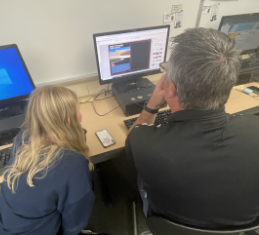A collective relief fills the classroom as a teacher announces group work. The relief never reaches me because I realize what this actually means. I will have to do all the work. Sure, I won’t be the only one in the group, but I will do all the meaningful work. In group work, there are four basic roles that each individual falls into including the empty promise maker, the lazy cheat, the master of excuses, and the hard worker. While teachers become excited at the prospects of a group project, no matter how teachers go about it – group projects are unequal, tedious chores for hard working students.
The empty promise maker is that one group member that never finishes what they promise to do. This member seems like a great addition at first glance but is actually a horrible addition once you realize their role. The empty promise maker pretends to add things to the group by appearing prepared at all times. It is important not to accidentally select the empty promise maker to be the leader because then the majority of the work will not get done. Otherwise, the rightful group leader, the hard worker, will task the member with simple jobs during class. The empty promise maker completes some of the easy tasks in class and promises to finish the rest at home. Unfortunately, the “at-home” work is never done. The overall contribution of the empty promise maker is basically nothing unless graders specifically value the theme of the powerpoint, the font of the words, and the correct spelling of the group members respective names.
The lazy cheat is… just lazy. When this member actually shows up, nothing is accomplished. This person is the one that unabashedly does not care. Students easily recognize this member whether they are sleeping in class, playing apps on their phone, or asking the teacher to get an extension on their 10 missing assignments that the student won’t complete with an extension. At least, the teacher is able to identify the lazy student. But, how some teachers treat the lazy student is very unhelpful. Sometimes, the teacher pities the student enough to give them participation points. How does the teacher justify these participation points? By the student’s sloppy participation during the presentation that essentially is reading off the slide verbatim. I don’t mean to say that most teachers handle lazy students poorly, but I have seen many that do. The lazy cheat unsurprisingly does nothing to help out the other group members.
The master of excuses, also referred to as MOE, is very easy to identify. MOE’s are very passive aggressive and refuse to believe that they fall into this category. The MOE always has the perfect excuse to get out of the project. By perfect, I mean incredibly flawed, unbelievable excuses. However, the MOE would still argue the validity of the excuses to anyone who slightly questioned the excuse. The excuses range anywhere from the classic “My dog just died” to the elaborate “Well, I was going to do my homework, but then suddenly there was an insane winter storm that only hit my neighborhood, and I had no access to the internet.” Before I’m yelled at for not caring about someone’s dog dying, don’t worry. I do actually care. It’s just that the dog never existed, and therefore, is not dead. The MOE is anything but a master of excuses and is an annoying addition to every group.
The hard worker, myself of course, is then left to deal with the important work of the assignment. It seems that there are simple outs to the situation, but it is not as simple as everyone would like to believe. The best solution to the problem is for teachers to give students the option to work in groups or work alone. Then, students are entirely in control of what will happen to their work. The amount of work assigned is not meant for one person thus being group work. However, if the majority of the group is not going to contribute, then the hard worker not only has to deal with the assignment, but also the unhelpful group workers.
Unless students have control of what will happen, group work settings are unhelpful, stressful environments. It is much more beneficial for students to be in charge of their own work than having someone else do their work for them. I understand that the intention of group work may be to have students improve their teamwork, but it never works out that way. Teachers should let students pick their own groups or don’t assign group work at all. Once the change happens, the students who decide to complete the project will end up learning something through it.






